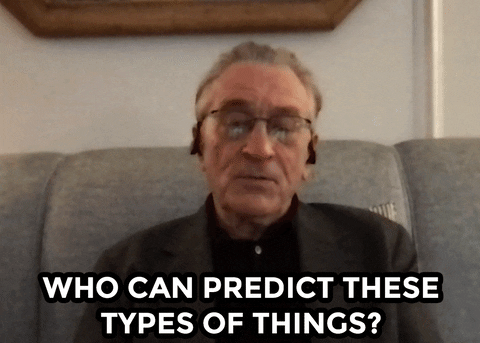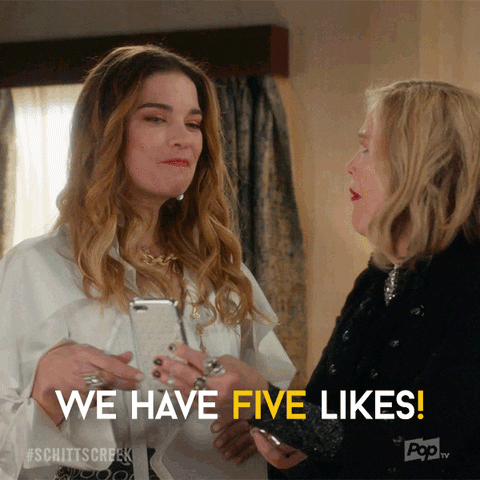Whether you’re new to the digital marketing world or are already familiar with all the ins and outs, I’m sure we can all agree that it’s the route of many headaches. The challenge of trying to navigate the volatile landscape and preferences of audiences is far from an easy task.
There’s no one size fits all approach, and lately, it’s not even enough to target a single characteristic or factor. A person’s gender, age, culture or even location isn’t enough to base a successful marketing campaign on. Today’s audiences want to be heard, and need to be understood. To put it simply, they want to be seen as more than just a number.
In this blog post, we’re going to explain why your marketing campaigns need more attention to detail, along with a personal touch, and the role that AI plays in accomplishing it all.
Let’s start with the basics – helping you accept that personalization is a necessity rather than a suggestion.

Is personalized marketing really necessary?
If you’re having doubts about whether or not AI personalization belongs in your marketing strategies, then here are a few statistics you should know:
- 90% of leading marketers say personalization significantly contributes to business profitability.
- 69% of customers appreciate personalization as long as they willingly provide the data (not bought).
- 80% of consumers are more likely to make a purchase when brands offer personalized experiences
- 91% of consumers are more likely to shop with brands that provide relevant offers and recommendations.
- 69% want a personalized and consistent customer experience across multiple channels.
- Personalization is valued and appreciated by 93% of businesses.
- Companies that excel at personalization generate 40% more revenue.
- In case it still isn’t clear – Personalization should factor into every marketing campaign!
The benefits of personalized marketing
- Improved UX – Personalized interactions help customers find what they need more quickly and easily. Consumers then engage more with your site and have a better user experience. When their feedback is taken seriously, they feel appreciated and understood. The result – an increase in customer satisfaction and loyalty.
- More customer loyalty – When a brand understands the preferences and needs of consumers, they’re more likely to stay loyal and make repeat purchases. It also played a role in decreased churn rates.
- Conversion rate increase – Personalized recommendations increase the chances of a purchase. The more relevant the recommendation, the higher the chances.
- Data-driven decision making – AI-driven personalization provides valuable insights into consumer buying behavior. Businesses can then make more informed strategic decisions. Having an understanding of their customers helps tailor marketing and sales strategies to be as effective as possible.
- Marketing efficiency – Personalized marketing messages resonate more with customers. This can help marketers reduce acquisition costs by as much as 50%, increase revenues by 5-15%, and increase their marketing efficiency by 10-30%.

The role of AI in personalization
Artificial intelligence is a tricky concept for many people to wrap their heads around. We’ll try our best to keep it simple.
This advanced technology is capable of mimicking human intelligence. It can learn from examples and make decisions based on the gathered information. These machines are taught to perform human tasks. They’re programmed with human-like intelligence and can adapt to new data.
Personalization refers to tailoring services or products to meet the individual needs and preferences of different customers.
Put the two together and you have AI personalization.
This is when AI is to customize services and products to suit individual consumer tastes. The AI uses machine learning to sift through vast amounts of customer data. It then analyzes this information in order to understand these individual preferences. From here, it’s capable of recognizing patterns in previous buying behavior, interactions and searches, and tailors the content as necessary.

Ways to use AI for personalization
Email marketing
There are a number of options to consider when it comes to email marketing. CMOs could opt for keeping it simple by addressing a subscriber by name in newsletters, or take it a step further with “You may also like” notifications based on previous purchase and browser history.
Many marketers take advantage of AI’s ability to identify your audience’s optimal open time. Using this valuable information, you can schedule email launches for a time and date that your viewers are most likely to open and engage with it. This has the potential to drastically improve the click-through-rates and number of opens for every email you send out.
Recommendations
If you’re looking for a way to turn consumers into paying customers, you should start showing them recommendations that are tailored to the unique data of the person viewing them.
AI can analyze large amounts of user data across various channels to help you make more accurate product and service recommendations. By providing relevant, personalized offerings to your individual viewers, sales figures are bound to increase.
Predictive analysis
The more customer data you gather, the more accurate the AI forecasts. Based on previous browning and purchase history, AI can make predictions regarding future trends and behavior.
With predictive analytics on their side, CMOs can optimize their sales funnels and customer journey. It also helps ensure that budgets and resources are allocated and used efficiently, having a positive impact on your bottom line.
Sentiment analysis
Understanding the sentiment behind a search or purchase decision ties in with the user intent (UI) of audiences.
With the help of AI, we can analyze the language and content of the input to gain a better understanding of the sentiment. This information is pivotal in enhancing future marketing campaigns. It’s also useful in programming chatbots to alter their responses in a way that resonates with the user. This in turn leads to an increase in customer satisfaction and loyalty.
Search assistance
Apps like Google Lens allow users to take or upload a picture of an item to the search engine rather than having to explain what they’re searching for. The goal is to simplify the search process for the digital audience.
Smart Search is another prime example of how the digital landscape is changing. This technology fills in blanks and completes phrases using autosuggest. Contextual recognition and autocorrect help in simplifying the search process, enhancing the user experience and satisfaction.

How does AI help in mastering campaign personalization?
1. Understanding Customer Preferences:
AI can analyze a vast amount of data to identify patterns, trends, and customer preferences. With the help of AI tools, CMOs can create detailed customer profiles and personas. Marketers should focus on personalizing campaigns to cater to their individual needs and interests.
Using data that’s collected from various touch points including website visits, social media interactions, purchase histories, and email engagement. This helps create a comprehensive understanding of your customers in order to provide more targeted marketing.
There is so much data available today – CTR, time on page, sales and revenue – and AI is the best way to use it to your advantage!
2. Real-Time Personalization:
AI tools can process customer behavior data in real-time to provide immediate personalized experiences. CMOs can use this feature to customize product recommendations, content, and messaging that resonates with customers at that very moment.
AI can also process information in real time, helping marketers address their needs as quickly as possible. This can be especially useful for presenting personalized offerings or recommendations while a customer is browsing your website or app.
3. Predictive Analysis:
Using AI, CMOs can forecast future customer behavior based on past data. Predictive analytics can help in crafting personalized campaigns that not only cater to customer’s present needs but also anticipate their future needs.
Predictive analytics can be used to forecast future customer behavior. AI helps to create predictive models that can help you understand what your customers are likely to do next. This can assist in crafting personalized campaigns that anticipate customer needs.
With the help of AI and predictive analytics, you can use these insights to elevate your marketing strategy by taking it from reactive to proactive. You’ll also have the added benefit of behavioral tracking.

4. Automating Campaigns:
AI is incredibly useful in automating repetitive tasks. That includes sending emails, posting on social media and content creation. CMOs can set rules for personalization, and AI will automatically apply them to each campaign. This helps save time and resources, and helps brands maintain consistency throughout their marketing.
With tools like ContentBot, you can automate long form content generation and choose how often this is performed. The plagiarism detection and paraphrase helps speed up the editing process, and workflows make sure that content is created, refined, and published as efficiently as possible.
Small details such as scheduling for an email to be sent at the recipient’s optimal open time make all the difference in driving engagement and sales.
5. Optimization:
Technology is advancing rapidly, with new trends and developments happening faster than marketers can keep up with. By constantly tweaking and refining strategies, CMOs can make sure their content is always relevant and competitive. It should always resonate with the audience and their inconsistent tastes and preferences.
AI tools have the added benefit of continuously testing and optimizing campaign elements. That goes for headlines, content, images, timing, the works. This data-driven approach ensures that the right personalized message is being delivered to the right customer, at the right time.
In monitoring the effectiveness of campaigns, CMOs have a clear indication of what works well with their audiences, as well as the areas needing improvement. This helps in optimizing future budget and resource allocation going forward. It’ll show you which CTAs grab the most attention, what landing pages receive the most traffic, and which techniques perform best with each segment. With these insights, markers can improve their data-driven decision making and maximize their ROI.
6. Multi-channel Consistency:
Consistency = Trust and credibility.
By consistently providing a personalized experience across different channels – be it on your website or through emails, social media and mobile apps – you’re guaranteed to enhance customer satisfaction. CMOs should aim to incorporate this tactic into every stage of the customer journey. For example, a client that searched for a product on your site now sees ads for similar items on their social media.
AI helps make this process much easier. With its help, CMOs can ensure a seamless customer experience regardless of the channel they use to interact with the brand.

7. Speaking their language:
Marketers are now becoming more and more aware of the value that adequate sentiment analysis holds for brands. They’re also now finding ways to use AI to help with analyzing the sentiment, meaning and tone behind a search. This technique is highly focused on the user intent behind user searches.
Once the AI has analyzed the intent of the input, it uses machine learning and natural language processing to interpret the context. It then alters its responses to provide output that will resonate best with the user, including tone, style, and even certain phrases.
Let’s not forget the AI’s ability to respond in a wide variety of different languages. CMOs no longer have to worry about language barriers! They’ll instead be able to expand their reach, while easily breaking into new markets and achieving greater customer satisfaction. Translators are no longer necessary, reducing costs and the timeous onboarding and offboarding processes.
8. Improved Decision Making:
AI’s ability to access, analyze and interpret vast amounts of data (from different sources) supersedes anything a team of data analysts could achieve. This also makes it more accurate and reliable, and devoid of costly human errors.
AI then uses this data to provide actionable insights and data-driven recommendations. This drastically helps CMOs make better decisions about their marketing strategies and campaign personalization, and ultimately helps in achieving better results.
Remember, personalization is not a one-time effort. Regularly reviewing your AI performance, making necessary adjustments, and continuously refining your processes only aids in enhancing campaign personalization.
9. Segmentation:
It’s important to note that the deeper your understanding of your audience, the more effective your segmentation efforts will be.
Consider factors like demographics, behaviors, and browsing and purchase history to group customers together. From there, you can create personas based on these finer details, defining them according to their unique challenges, goals and values. This will help you create highly targeted marketing to address their needs directly, resulting in higher customer satisfaction and loyalty.
AI can analyze customer data and segment them into different groups based on this data, saving you the time and effort of manual segmentation. This way, CMOs can create more relevant and personalized campaigns for each segment.
One of the biggest advantages of using AI for segmentation is that it’s dynamic and always changing. That means that it evolves along with your customers’ preferences.
10. AI Chatbots:
From customer service bots to conversational chatbots that perform certain tasks such as ChatGPT and InstructBot, this form of AI is easily one of the most popular. They’re often programmed to answer a business’s FAQs and data in order to answer questions effectively. An added benefit is that they’re operational 24/7, irrespective of time zones and, if they’re slightly more advanced, language. This eliminates the need for rotating customer service teams and call centers.
AI chatbots can help provide more personalized interactions with customers. They’re capable of answering queries, providing product recommendations, and even helping with purchases, enhancing the overall customer experience for users.

The future of AI personalization
How CMOs can ensure their marketing stays relevant
- Keeping up to date with industry trends – Attend industry events and conferences. Follow the latest news, trends and development within your field to keep up with competition and stay relevant.
- Skill development – SEO is a necessary skill for all digital marketers. CMOs should invest in the skill development of their teams as a whole. Online courses, webinars and workshops are all sources of valuable information and inspiration.
- Building a strong online presence – Makes sure you pay close attention to the UX design of your website. Make sure it’s easy to navigate, and optimized for search engines. Produce high quality, consistent content. Try to make data-driven decisions, and establish industry connections.
- Networking – Mutually beneficial partnerships hold huge potential for digital marketing. Working with influencers is a prime example of a rising trend that ‘s already proven successful for many businesses. Associating with your competitors and industry thought leaders will help create awareness for your brand and make sure you’re never far behind.
- Adaptability and flexibility – Make sure to test, tweak and constantly monitor your marketing strategies. The digital marketing world is incredibly volatile, and it really is “adapt or die”. Try different technologies to find the most suitable solution, and try to foster an environment of innovation and experimentation.
- Technology – AI is quickly proving to be a huge advantage for marketing teams. It helps transform the content creation process, making it faster and easier while reducing overhead costs. Using it to gather, analyze and interpret data is only the first step – AI can turn this data into actions. You can automate the content creation process and ensure a constant flow of relevant content for your audiences with the touch of a button.

ContentBot’s AI content automation
With a wide variety of tools to offer, including an impressive built-in SEO too, ContentBot is a great option for content automation. It helps in creating anything from blog posts to social media captions, landing pages, song lyrics and is even capable of handling your campaign management as a whole.
The platform’s content automation features allow you to create blog posts on a regular basis that are then emailed to you for approval. Further to that, you can even run AI commands (similar to what you would do on ChatGPT) and ask it to send you the output in regular intervals, be it hourly, weekly or monthly.
The new Zapier integration provides a host of new automation features. Once a content automation task runs on ContentBot, you’ll soon be able to push that to Zapier in order to push your content to places like Shopify, WordPress, Medium, email, Zoho, Mailchimp and even Google Docs!
ContentBot offers a Chrome extension to make it as easy as possible for users. You’ll have access to a paraphrasing tool and plagiarism checker, ensuring that your content is 100% unique.
Here are just a few perks that come with using ContentBot as your AI content automation tool:
- Create content automatically: hourly, weekly, monthly
- Push content to Zapier.
- Built-in SEO tool for real-time insights.
- Social media integration.
- High-quality and engaging content.
- The platform is fast and easy to use.
- Option to upload bulk Imports for content generation.
- Create custom workflows with the Flows feature.
Points to remember…
As time goes on, customers are starting to expect a personalized experience from brands, especially if they’ve made multiple purchases. They want to be seen, understood and valued. This makes personalization one of the most effective methods of increasing conversion rates. These connections between your brand and customers should be seen as nothing less than an asset.
AI’s role in personalization is proving to be more and more impactful on marketing strategies. From emails that address recipients by name to incomplete purchase reminders, it helps streamline the customer journey while reducing costs.
AI helps you gain a better understanding of your customer base, make more data-driven decisions, make more accurate forecasts for the future, and optimize your marketing campaigns. What’s more – this is all achievable using one central platform. Adding a personal touch to your marketing has never been easier, simpler, or more cost-effective. The benefits of AI content automation for CMOs are undeniable.
Tools like ContentBot help achieve AI content automation at every point along your marketing strategy. From idea generation, to execution and monitoring, it’s your one stop shop for all things automation. If you’re looking for a way to stay relevant in this ever-evolving industry, AI should become an integral part of your marketing team.
Have you tried using AI to help you achieve personalization in your marketing? If so, let us know about your experience in the comments section!

- How AI is Transforming the SEO Landscape: A Marketer’s Perspective - February 29, 2024
- How To Use AI For Keyword Research: A Marketer’s Guide - February 16, 2024
- The Impact of AI Writers on SEO Performance: Friend or Foe? - January 31, 2024
